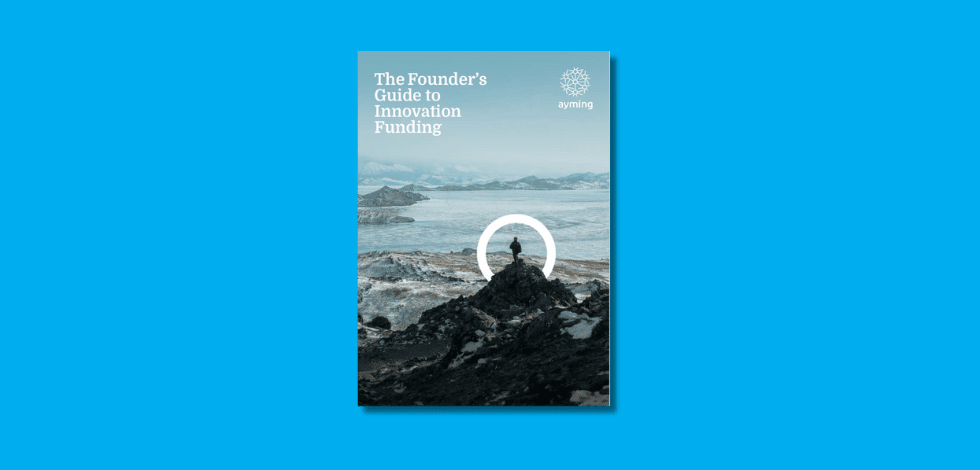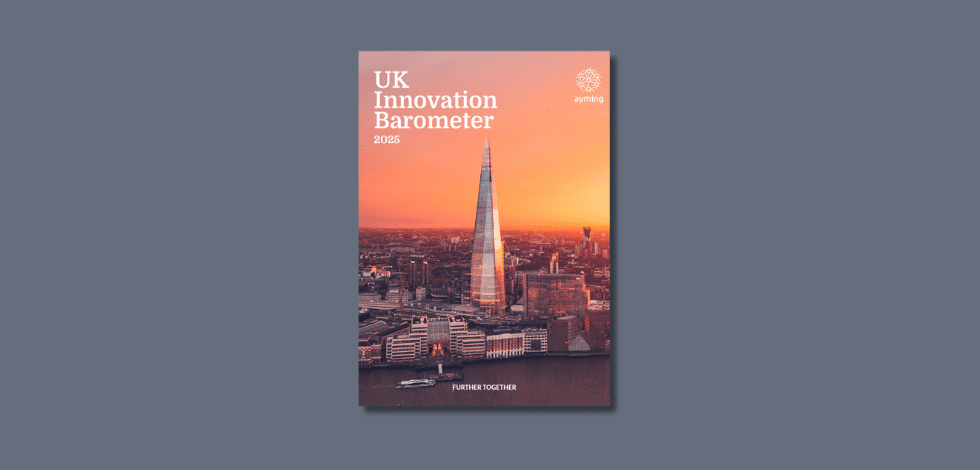There’s no denying that employers could be doing better at recruiting technically-talented women. So we sat down with one of our own: Emilia Kaprou, IT Consultant, R&D Tax Incentives, to get her thoughts on just why that is – and what should be done about it.
Can you outline your career to date?
I’ve always been passionate about coding and technology, ever since I was little. And I’ve spent my life looking for opportunities to pursue this passion.
It’s been quite a journey. It saw me leave Cyprus to study for my MSc in Software Systems Engineering at UCL, which is regularly ranked among the top three institutions in the world for the subject.
My career began with a three-year stint as a software engineer at a tech company called OnTrac working for Network Rail, where I learned a great deal before joining Ayming in May 2017.
How does your background in tech help you in your work?
Technology is my work. I use the knowledge and skills I picked up studying computer science every day.
At Ayming I assess which tech companies can qualify for the R&D tax relief incentive – reducing my clients’ tax bills or enabling them to receive a cash sum (in the form of a tax credit) as reward for their efforts.
R&D tax relief was introduced almost 20 years in an attempt to motivate companies to take more technological risks. By helping them to take advantage of the scheme, we’re providing some of the fuel for innovation upon which the whole economy depends.
The number of women working in Information Technology and Computing in the UK represents only 15% of the total and is not growing.
What do you think is the biggest issue facing the industry at the moment?
The lack of women in technology. When I was growing up, I often heard people saying discouraging things like “programming is for men”. I found it hard to understand why. After all, what could be more fun than a career solving complex problems?
In my opinion, this negativity, even from an early age, can have a real impact in steering women away from certain career paths. Even before I started working, I was the only woman in a number of classes at school and university, for example.
And when women get into the industry, it’s not much easier. I know countless women who have suffered discrimination in some form or other, from not being taken seriously in a meeting all the way to being paid less or promoted slower. It’s understandably very frustrating.
I’m not saying that people don’t want to fix the problem. Most people understand in the abstract that gender equality is important – we all know that we need a diverse range of experiences, thinking styles and ideas if we’re to do our best work.
Take seatbelts, for example. Few women were involved in their design and testing. And since female test dummies were not introduced until 2011, we have for years sold cars that are less safe for women than men. It is no coincidence that female drivers are 47 percent more likely to be seriously injured in a car crash – an issue we could have avoided with more diversity of perspectives in production.
But changing organisational and industry culture is easier said than done. And there is plenty still to do.
Gender stereotyping is dissuading young women from pursuing careers in traditionally male industries, resulting in women ending up in low-paid jobs. 3.4% of engineering & manufacture apprentices are female.
How would you solve the problem?
I think the solution has to address two separate issues: attracting talented women, and subsequently retaining them.
In the first instance, I’d love to see technology and engineering sector employers working harder to demonstrate the value of such a career to young women.
This should go beyond the typical salary and benefits points that technical employers often make and get to the heart of what really makes tech so worthwhile – it’s really interesting and great fun to work in.
A targeted social media campaign, focused on showing women the exciting lives they could lead and encouraging them to learn more about the sector, would be a start. Following this, gender quotas for entry-level positions would do a world of good in ensuring there are adequate opportunities for young female engineers to join the workforce.
And we need to retain more women once they’ve joined the industry. For that, I think we need more role models. It’s a bit of a “chicken and egg” situation, but hopefully as women in technology keep rising the ranks, their example will inspire more to follow. And they can mentor the rest of us, looking to follow in their footsteps.
88% of all information technology patents (from 1980–2010) are invented by male-only invention teams while only 2% are invented by female-only invention teams.
What advice would you give to young women starting their own careers in technology?
I think the key is to have courage, for example the first time you go to a meeting and find yourself the only woman sat at the table it can be intimidating and difficult to make your voice heard. But confidence is crucial. You have subject expertise, so know what you want to say and say it with clarity. Building on this, don’t be afraid to ask for what you want – people will respect you all the more for it.
I also like to look to my own mentor as an example. She exudes absolute confidence and control – especially over the “little moments” that make a difference. You wouldn’t catch her serving everyone in the meeting coffee, just to keep them happy. And her composure means it’s hard to imagine anyone ever asking her to.
Just focus on ensuring you get what you want out of the meeting and the rest will fall into place. Again, it comes down to having confidence in yourself. Soon enough, others will too.












